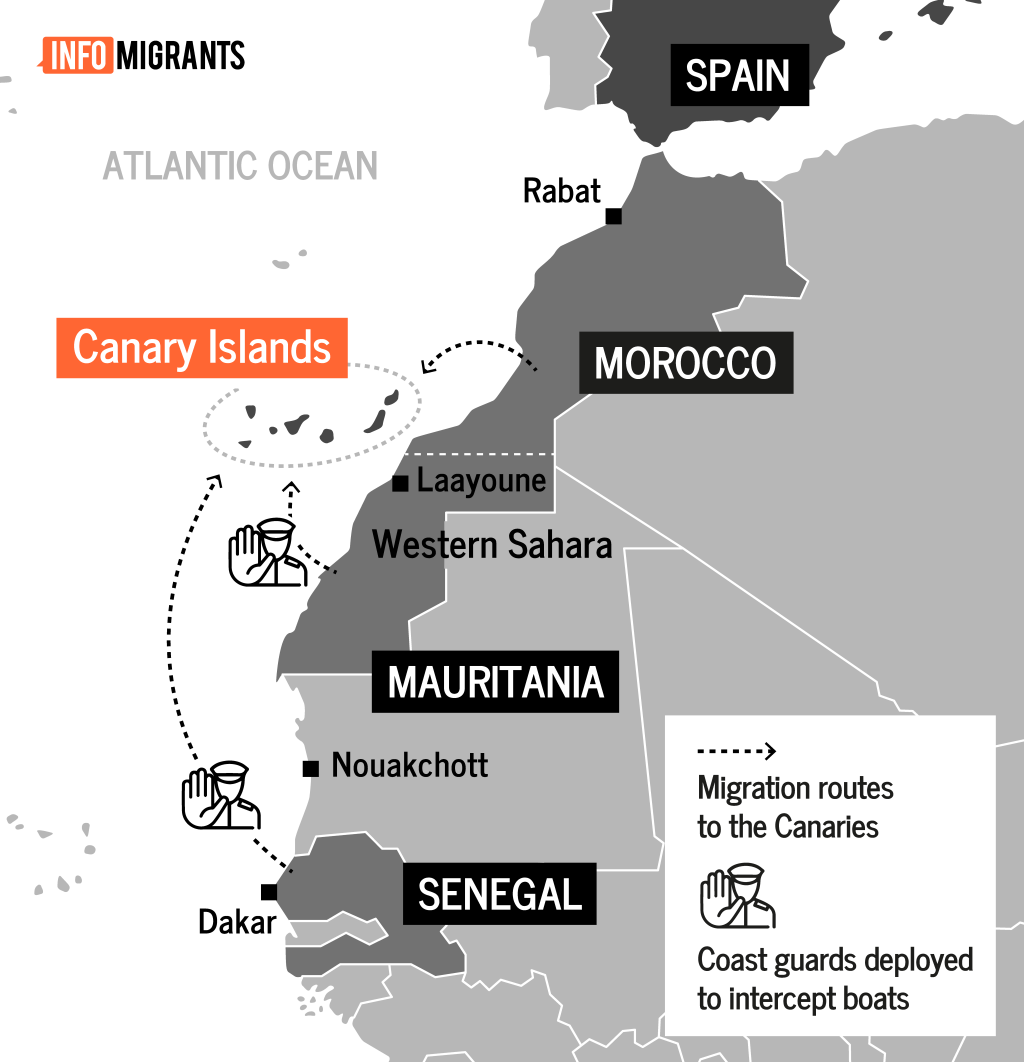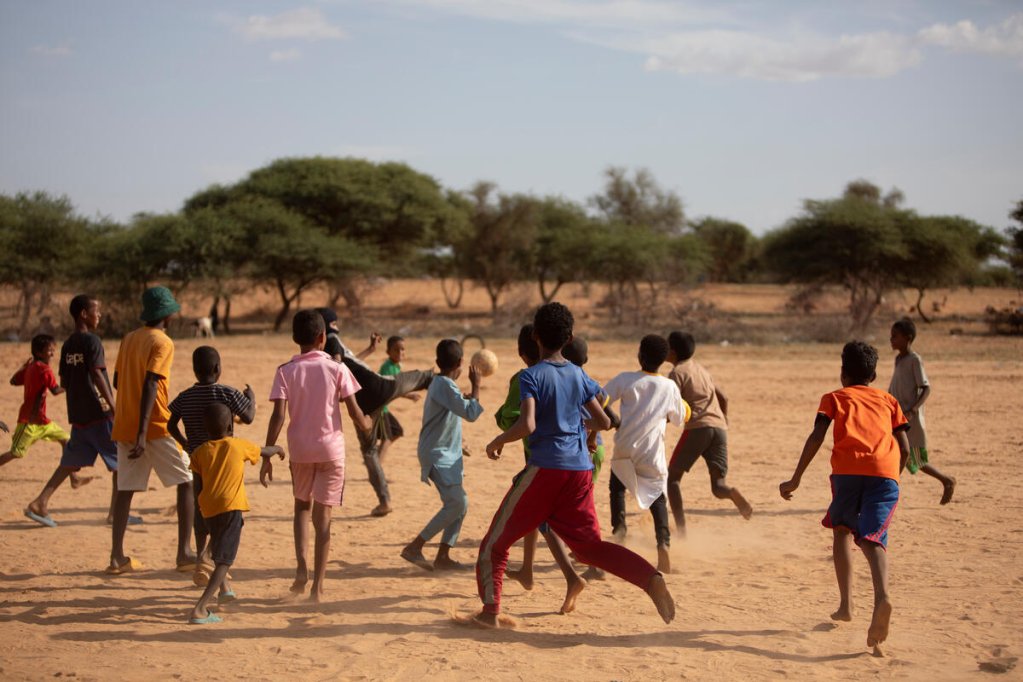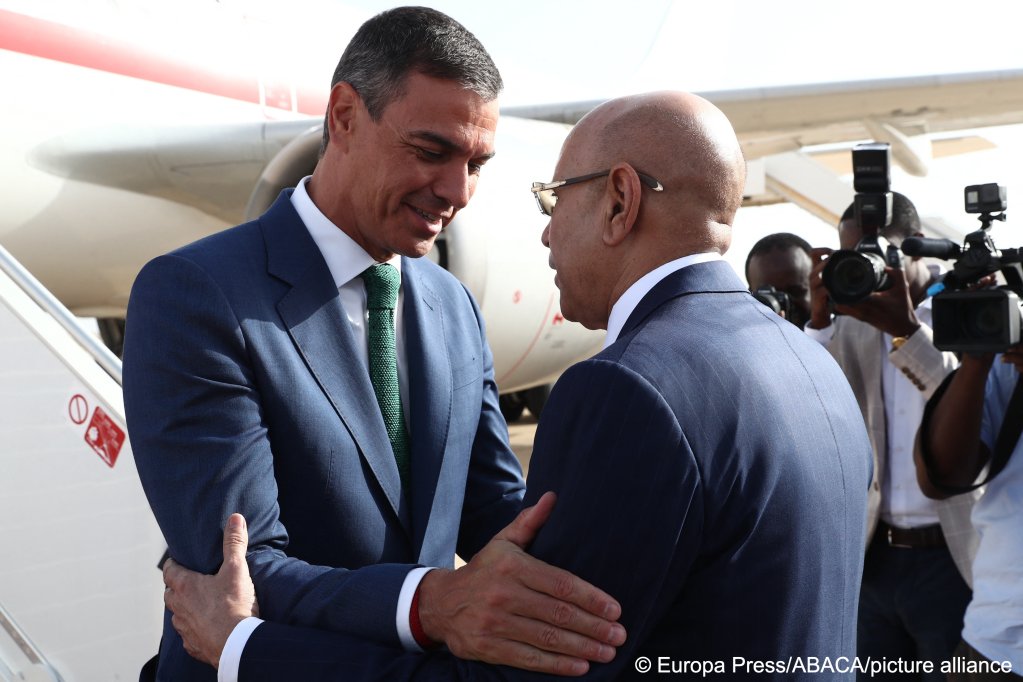The government of Mali has criticized authorities in neighboring Mauritania, accusing the Sahel nation of committing acts of violence against Malian citizens as part of its deportation measures.
For several weeks, the have been mounting reports of authorities in Mauritania expelling migrants, coming mostly from neighboring countries in west Africa like Senegal, Ivory Coast, Guinea — and also Mali.
Now, the government of Mali has issued an official statement, criticizing the heavy-handed measures used by Mauritanian officials who intercept and deport irregular migrants found in the territory of the vast west African country.
Mali referred to the practices as a "flagrant violation of human rights" which must end. However, there are multiple layers to the fraying ties between the two countries
Read AlsoMauritania – a new irregular migration gateway to Europe?
'Indignation'
"The government of Mali expresses its indignation and condemns with the utmost rigor the treatment suffered by its nationals in Mauritania," a statement released during a press conference in the Malian capital Bamako read on Wednesday.
"[T]he conditions of arrest in flagrant violation of human rights and the rights of migrants in particular" were notably singled out in the statement.
Mali's government furthermore called "on the Mauritanian authorities to show restraint" and "for an immediate cessation of violence against Malian nationals."
Read AlsoMauritania: Migrants face round-ups, arrests and deportations
Mauritania: a stopover en route to Europe?
Mauritania has in recent years emerged as a major departure point for African migrants hoping to reach Europe by sea, with nearly all of them relying on smugglers to take them to Spain's Canary Islands, which are part of the European Union.
There are growing reports of severe rights abuses not only at the hands of the smugglers who are paid to facilitate the dangerous journey to the archipelago in the Atlantic Ocean, but also at the hands of security officials tasked with preventing irregular migrants from reaching Mauritania’s shores before their intended departure.

In recent weeks, there have been more and more reports of Malian nationals being pushed back from Mauritania because of their irregular migration status, according to Mossa Ag Attaher, who heads Mali’s ministry of Malians Living Abroad.
More than 1,800 Malians are believed to have been sent back to their country after being intercepted, detained and reportedly brutalized prior to the deportation.
Migrants rights groups such as the French organization SOS Esclaves have been decrying the "inhumane" conditions in Mauritania among migrants rounded up and detained for deportation.
Read Also89 migrants confirmed dead after boat capsizes off Mauritania
From friendly to frosty relations
Mali and Mauritania historically enjoy close ties, making this diplomatic stand-off a rarity in the 65 years since both nations became independent from their former colonial power, France.
Mali's government stressed in its statement that despite the current disagreements talks with Mauritania will continue "to preserve the solid historic ties between the two countries."

To this end, Mali’s foreign minister, Abdoulaye Diop, visited Mauritania earlier in the week to double down on the message of needing to maintain "friendly and brotherly relations" between the two nations, Mauritania’s state-run AMI news agency said.
AMI added that during the meeting, Mauritanian Foreign Minister Mohamed Salem Ould Merzoug, focused on discussing the respective status of citizens of each nation in the other country.
But the foreign minister also insisted, according to AMI, that Mauritania "has the right to take all necessary measures to ensure its security and to protect its citizens."
Read AlsoSpain seeks to stem migration with vocational training in West Africa
The long shadow of military rule
There's also an important political component to the ongoing dispute between the two nations, which needs to be considered:
Mali has been under military control since suffering a coup d’etat almost four years ago, upon which it quickly soured its relations with the West and focused on instead beefing up ties with neighboring junta-run nations Burkina Faso and Niger, which have been under military rule since 2022 and 2023, respectively.
Mauritania is perceived to have somewhat distanced itself from these west African nations since their leaderships are no longer elected democratically.
Mauritania has its own long history of suffering from repeated military coups since gaining independence in November 1960, and now appears to want to avoid what seems to be a trend in the region towards military rule in recent years.
Mauritania and Morocco
Immediately after the visit, Mauritanian Foreign Minister Ould Merzoug departed on a journey to meet with his Moroccan counterpart, Nasser Bourita.
According to official statements, the talks between the two ministers were largely focused on bilateral cooperation across various sectors and continued coordination on issues of mutual interest.
However, with Morocco also a major point of departure for migrants — in particular from the disputed Western Sahara region — the two countries appear to hope to collaborate in managing the departure of migrants hoping to head to Europe.
A year ago, the EU announced an additional 210 million euros in aid to Mauritania to help control migration; Morocco meanwhile receives about 1,7 billion euros in EU funds to manage migration— in addition to several billion more in aid and developments funds.

Meanwhile, the government of Spain, which is most affected by migrant departures from Mauritania, has signed a separate direct agreement with Mauritania to contain irregular departures to the African mainland.
Read AlsoSpain and Mauritania announce cooperation on migration
with AFP
